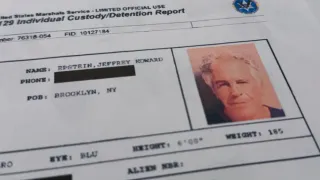May 9, 2018
'Star Trek' Actor George Takei Discusses Internment Camps
READ TIME: 1 MIN.
"Star Trek" actor George Takei has appeared in Boston to talk about his experiences in U.S. internment camps during World War II.
In an event at the Boston Public Library Tuesday, Takei discussed his family's history in the camps that put Japanese-Americans behind barbed wire between 1942 and 1946.
Takei used his family's story as the inspiration for the Broadway musical "Allegiance."
The show tells the narrative of the fictional Kimura family, whose lives are upended when they and 120,000 other Japanese-Americans are forced to leave their homes following the 1941 attack on Pearl Harbor.
The cast of the SpeakEasy Stage Company's production of Takei's musical also performed during the event.






